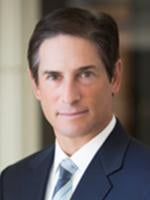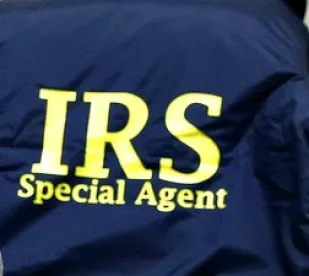Paying a waiter or babysitter in cash could have constituted a felony tax obstruction offense under the government’s expansive interpretation of the obstruction statutes. The March 21 ruling by the US Supreme Court places a limit to that interpretation, requiring the government to provide fair warning on the felony line.
In a 7-2 decision in Marinello v. United States,1 the US Supreme Court applied the brakes to Internal Revenue Service (IRS) obstruction prosecutions by requiring the US Department of Justice (DOJ) to prove that the taxpayer knew that he/she was obstructing a pending tax-related proceeding, like an investigation or audit, or could reasonably foresee that such a proceeding would commence. The Supreme Court reversed the US Court of Appeals for the Second Circuit’s decision that did not require this proof and would have allowed such prosecutions for all conduct in any way relating to one’s tax returns. The significance of the decision is that given the DOJ’s May 2017 charging policy mandate to charge the most punitive crimes that can be readily proven at trial, had the Supreme Court not reigned in on DOJ by requiring this additional proof of the taxpayer’s awareness of a pending IRS investigation or audit, DOJ would have brought felony tax obstruction charges for most tax prosecutions that involve only misdemeanors—such as failure to file returns, keep all records, and pay all tax—or that involve such situations as common as leaving a large cash tip in a restaurant or paying a babysitter more than $40 a week and not withholding tax. By rejecting the government’s expansive interpretation of the tax obstruction statute, the Court has required fair warning be given to taxpayers as to where the felony line is that they cross at their own peril.
BACKGROUND
Carlo J. Marinello, II owned and operated a New York freight service that transported documents and packages to and from the United States and Canada. Between 1992 and 2010, Mr. Marinello maintained little documentation of his business income or expenses. He shredded or discarded bank statements, employee work statements, gas receipts, and bills. He failed to file personal or corporate tax returns and paid his employees in cash without issuing them Form W-2s. He also used the company’s funds for personal purposes, including mortgage payments on his residence made through weekly cash contributions to his wife and payments to his mother’s senior living center.
Unbeknown to Mr. Marinello at the time, from 2004 to 2009, the IRS Criminal Investigation Division opened a criminal investigation into his activities, closed the investigation, and then reopened it. In 2012, he was charged in a superseding indictment with one felony violation of 26 USC § 7212 (Section 7212), corruptly endeavoring to obstruct and impede the due administration of the Internal Revenue laws, and eight misdemeanor violations for failing to file his individual and corporate returns. The Section 7212 charge alleged that Mr. Marinello had violated the statute by failing to maintain corporate books and records, failing to provide his accountant with all his and his company’s income information, destroying company records, cashing business checks, hiding company income in personal accounts, transferring assets to a nominee, paying employees with cash, and using company money to pay personal expenses.
At trial, Mr. Marinello requested a jury instruction for the Section 7212 charge that said the government must prove he was aware of a pending IRS investigation at the time he allegedly committed the acts that obstructed the IRS, relying on the US Court of Appeals for the Sixth Circuit’s decision in United States v. Kassouf.2 The district judge declined to give that instruction, and the jury convicted Mr. Marinello on all counts. The district judge sentenced him to 36 months’ imprisonment and imposed restitution of more than $350,000.
On appeal to the Second Circuit, Mr. Marinello argued that the Section 7212 charge requires a defendant’s knowledge of a pending IRS action in order to be guilty of the offense. Since there was no evidence presented at trial that he knew or could reasonably have foreseen that the IRS was investigating him at the time he took any of the charged actions, he requested the appellate court to reverse his conviction. The Second Circuit, splitting with the Sixth Circuit but aligning itself with the other circuits that had considered the issue, rejected Mr. Marinello’s argument. The Supreme Court granted certiorari to decide this issue.
SUPREME COURT DECISION
Writing for the majority, Justice Stephen Breyer analyzed Section 7212’s language which forbids “corruptly or by force or threats of force . . . [to] obstruct or impede, or endeavor to obstruct or impede, the due administration of [the Internal Revenue Code].” Focusing on the last part of the sentence (“due administration of [the Internal Revenue Code]”), the Court asked the central question in the case: does this statutory phrase cover virtually “all governmental efforts to collect taxes” including the ordinary processing of income tax returns, or does the clause refer to “specific interference with targeted governmental tax-related proceedings, such as a particular investigation or audit?” The Supreme Court adopted the latter meaning of the phrase, reversing the Second Circuit and requiring the government to prove that the defendant knew of a pending IRS proceeding at the time he committed the obstructive acts or that such a proceeding was reasonably foreseeable by the defendant.
The Court reached this conclusion by analogizing it to the general obstruction statute, 18 USC § 1503, which makes it a crime to obstruct the “due administration of justice.” In United States v. Aguilar,3 the Court imposed a “nexus requirement” mandating that the defendant’s act of obstruction have a “relationship in time, causation, or logic with the judicial proceedings.” Thus, false statements made to an investigating agent, rather than a grand jury, did not support a Section 1503 conviction for obstruction of justice.
Similarly, in the Marinello case, the Court applied this same nexus requirement between the obstructive act and the “due administration of the Internal Revenue Code” under Section 7212. The Court emphasized that if the government’s reading of the statute were adopted, Section 7212 felony provisions would cover all “routine processing of tax returns, receipt of tax payments, and issuance of tax refunds,” a result far broader than anything indicated by Congress in the statutory or legislative history. Moreover, such a broad reading would effectively turn most tax misdemeanors into felonies like those, for instance, for willfully failing to furnish a required statement to employees (26 USC § 7204), and willfully failing to keep required records and pay any tax owed (26 USC § 7203). Such an expansive reading could also create a constitutional due process “lack of fair warning and related kinds of unfairness” for taxpayers since Section 7212 could cover conduct like “pay[ing] a babysitter $41 per week in cash without [deducting] withholding taxes, . . . leav[ing] a large cash tip in a restaurant, fail[ing] to keep donation receipts from every charity to which he or she contributes, or fail[ing] to provide every record to an accountant.”
The Court rejected the government’s argument that the Court should simply trust prosecutors to exercise their discretion to bring Section 7212 charges in only the more egregious cases. Justice Breyer specifically noted that the US Attorney General had issued a charging and sentencing policy to all federal prosecutors on May 10, 2017 instructing them to charge the most punitive provision applicable as long as it can readily be proven at trial. If the Court gave prosecutors a blank check on Section 7212’s reach into any type of tax-related conduct and prosecutors were now obligated to charge the most punitive crime in every case, then the Court could see going forward how normal taxpayer activity and misdemeanor conduct would be routinely elevated to Section 7212 felonies. The Court was not willing to construe a criminal statute “on the assumption that the Government will ‘use it responsibly’,”4 nor was it willing to allow “policemen, prosecutors, and juries to pursue their personal predilections”5 in ways that would create inconsistent applications of Section 7212 across time and geographic locations.
In order to ensure fair notice under the Fifth Amendment due process clause of where the criminal line is drawn for a Section 7212 felony, the Court ruled that government must prove that a defendant knew that he was obstructing a pending tax-related proceeding like an investigation or audit or that such a pending proceeding was reasonably foreseeable to the defendant.
SIGNIFICANCE OF THE DECISION
The significance of the Marinello decision is best understood by what could have happened had the Court ruled in the government’s favor rather than on behalf of Mr. Marinello. Under the government’s interpretation of the statute, any taxpayer actions, from using cash to pay an employee, a waiter, or a babysitter to not saving all records to support an expense or deduction, not withholding sufficient amounts, or not providing all records to an accountant, could have constituted actions that obstruct or impede the “due administration of the [Internal Revenue Code] under Section 7212. Rather than charging misdemeanors for such conduct, federal prosecutors would have been obligated under the May 2017 charging policy to indict Section 7212 felonies for such conduct.
By ruling in favor of Mr. Marinello, the Court has imposed a significant requirement on the government to prove a Section 7212 violation by requiring them to show that the defendant knew that he/she was obstructing a “targeted tax-related proceeding” or that such a proceeding was reasonably foreseeable by the defendant. The Court, however, did not provide a finite list of what constitutes “targeted tax-related proceedings” other than to give examples like an investigation or audit and carve out “routine day-to-day work carried out in the ordinary course by the IRS, such as the review of tax returns.” Nor did the Court provide an exhaustive list of what comprises “reasonable foreseeability.” The Court stated that it was not enough “for the Government to claim that the defendant knew the IRS may catch on to his unlawful scheme eventually.” As for what would create “reasonable foreseeability,” the Court was content to leave it fairly vague: “To use a maritime analogy, the proceeding must at least be in the offing.”
With this new requirement to bring a Section 7212 prosecution, the government will most likely concentrate its prosecutions under this statute on those defendants, like tax defiers, who brazenly obstruct or impede the IRS’s ability to assess and collect taxes during its criminal investigations, civil audits, or civil tax proceedings. Those who do not fit in these more circumscribed categories can breathe a bit easier that they do not have to rely on some prosecutor’s unfettered discretion to decide whether to charge them with a felony.
1. No. 16-1144 (decided March 21, 2018).
2. 144 F.3d 952 (6th Cir. 1998).
3. 515 US 593, 599 (1995).
4. Marinello, slip op., at ___; quoting McDonnell v. United States, 579 US ___, ___ (2016) (slip op., at 23) and United States v. Stevens, 559 US 460, 480 (2010).
5. Marinello, slip op., at ___; quoting Smith v. Goguen, 415 US 566, 575 (1974).



 />i
/>i
